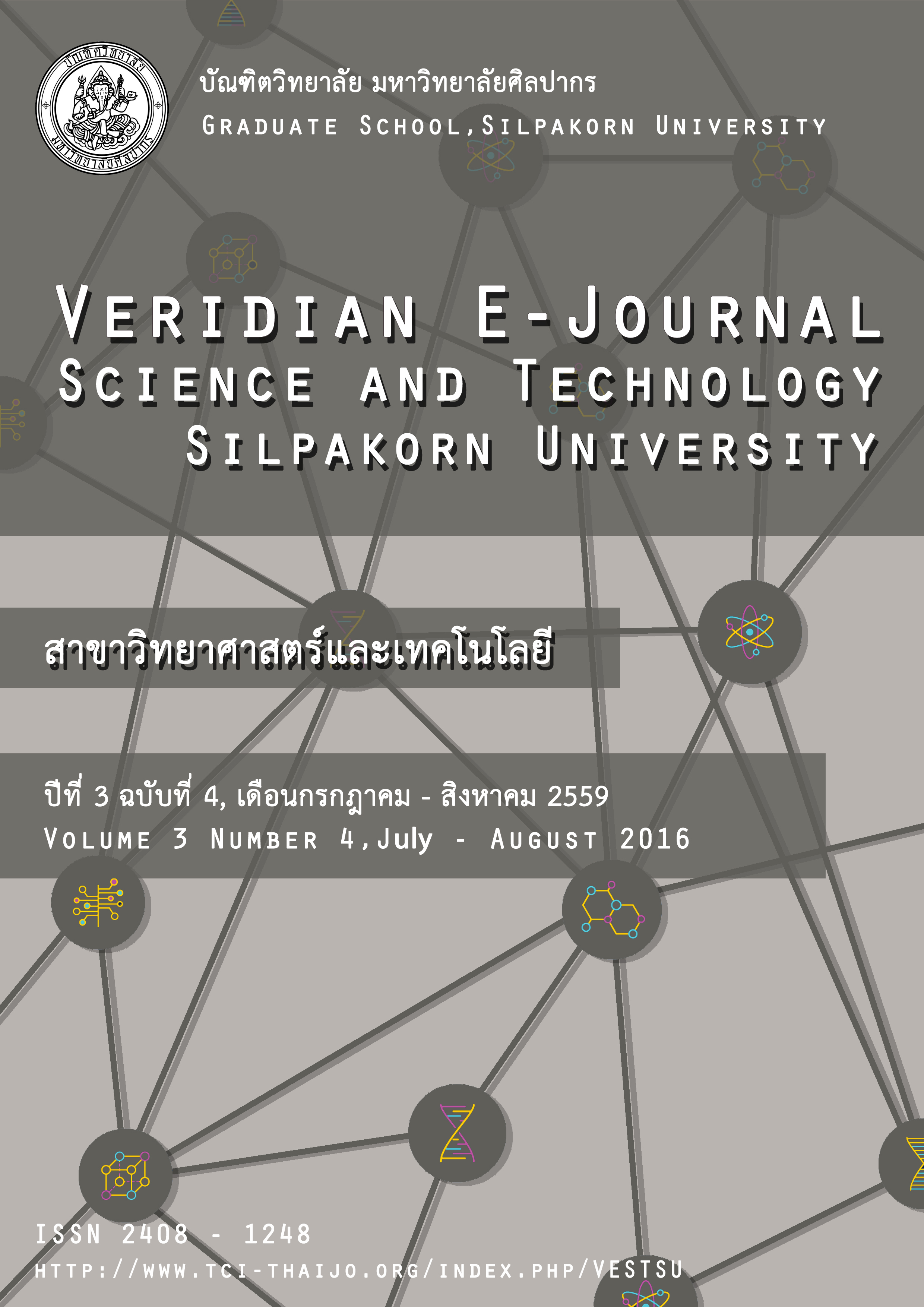ผลของโปรแกรมส่งเสริมการเลิกสูบบุหรี่สำหรับผู้สูบบุหรี่ ในตำบลบางแก้ว อำเภอเมืองอ่างทอง จังหวัดอ่างทอง
Main Article Content
Abstract
การวิจัยกึ่งทดลองนี้ มีวัตถุประสงค์เพื่อศึกษาผลของโปรแกรมส่งเสริมการเลิกสูบบุหรี่ โดยประยุกต์ใช้ทฤษฎีการรับรู้ความสามารถตนเอง ร่วมกับแรงสนับสนุนทางสังคมต่อการเลิกสูบบุหรี่ของผู้สูบบุหรี่ปัจจุบันในตำบลบางแก้ว อำเภอเมือง จังหวัดอ่างทอง กลุ่มตัวอย่างแบ่งเป็นกลุ่มทดลองและกลุ่มเปรียบเทียบ กลุ่มละ 34 คน ระยะเวลาในการศึกษา 10 สัปดาห์ เก็บรวมรวมข้อมูลโดยใช้แบบสัมภาษณ์ 3 ช่วงเวลา ได้แก่ ก่อนการทดลองในสัปดาห์ที่ 1 หลังการทดลองในสัปดาห์ที่ 6 และระยะติดตามผลในสัปดาห์ที่ 10 วิเคราะห์ข้อมูลโดยใช้สถิติเชิงพรรณนา ได้แก่ ความถี่ ร้อยละ ค่าเฉลี่ย และส่วนเบี่ยงเบนมาตรฐาน และทดสอบความแตกต่างด้วยสถิติ Chi-square, Independent t-test และ Repeated measures ANOVA
ผลการวิจัยพบว่า กลุ่มทดลองที่เข้าร่วมโปรแกรมครบมีจำนวนคงเหลือ26 คน มีการเปลี่ยนแปลงของความรู้เกี่ยวกับบุหรี่ และการรับรู้ความสามารถตนเองในการเลิกบุหรี่ ภายหลังการทดลอง และในระยะติดตามผลดีกว่าก่อนการทดลอง และดีกว่ากลุ่มเปรียบเทียบในช่วงเวลาเดียวกันอย่างมีนัยสำคัญทางสถิติ (p <0.001)สำหรับความคาดหวังในผลดีของการเลิกบุหรี่ พบว่าทั้ง 3 ช่วงเวลา กลุ่มทดลอง มีความคาดหวังในระดับสูง กลุ่มเปรียบเทียบ มีความคาดหวังในระดับปานกลาง และไม่พบว่ามีความแตกต่างกัน (p > .05) เมื่อเปรียบเทียบระหว่างกลุ่มและภายในกลุ่มภายหลังเสร็จสิ้นการทดลองในสัปดาห์ที่ 6 ถึงระยะติดตามผลในสัปดาห์ที่ 10 พบว่ากลุ่มทดลองเลิกสูบได้ต่อเนื่องนาน 4 สัปดาห์ จำนวน 10 คน (ร้อยละ 38.5) สรุปว่าโปรแกรมส่งเสริมการเลิกสูบบุหรี่ที่ออกแบบโดยใช้ทฤษฎีทางด้านพฤติกรรมศาสตร์ สามารถช่วยให้ผู้สูบบุหรี่สามารถเลิกสูบบุหรี่ได้
The purpose of this quasi – experimental study was to examine the effects of self-efficacy theory and social support – based smoking cessation program for quitting smoking among current smokers The sample comprised of 68 current smokers living at Bangkaew subdistrict, Muang Angthong district, Angthong Province. Simple random sampling was used to select the control group and the experimental group. There was an equal sample in the two groups, 34 current smokers. The study was conducted over a period of 10 weeks. Interview data were collected by questionnaires in three phases,pre-intervention phase,post intervention phase on the 6th week and follow up phase on the 10th week. Statistical analysis was performed by using descriptive statistics and inferential statistics, Paired Samples t-test, Independent t-test and Repeated measures ANOVA.
The results revealed that after the smoking cessation program, in the experimental group, 26 of the current smokers who completed participation in the an intervention program, had significantly increased in knowledge and their perception on self-efficacy to quit smoking at post intervention on the 6th week and 10th week than during the pre-intervention phase (p < 0.001). Over the three phases of data collection, the experimental group got an outcome expectation score to quit smoking at high level. So, the study did not find significant change on outcome expectation to quit smoking (p > 0.05).In addition, the experimental group had significantly higher score of knowledge, perception on self-efficacy and outcome expectation to quit smoking than the control group at post intervention on the 6th week and 10th week (p < 0.05), except at the pre-intervention phase (p >0.05). After completing the intervention program, 10 of 26 current smokers in the experimental group were able to stop smoking for 4 weeks (the 6th week to the 10th weeks), at 38.5 percent. In conclusion, the theoretical based smoking cessation program and social support from the researcher and public health volunteers can help smokers to stop smoking.

